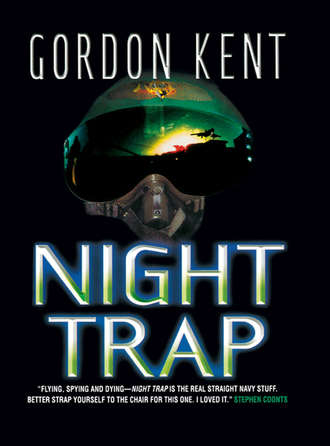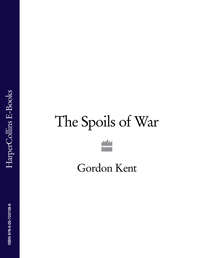
Полная версия
Night Trap
They trotted up the two flights of stairs and turned right and trotted to a door that said VENUX in English characters. Inside were fluorescent lights and head-height partitions in cheap beige fabric, a sense of modernity and busyness rare in that building, in that city.
The four men went through the door, took out silenced Type 51 Kalashnikovs and began firing through the partitions. They sprayed the room methodically, and when one ejected a clip he would drop it into a bag and slam home another and resume shooting. Men and women were screaming and trying to run away, and a man looked over a partition by jumping up and down until he was hit. Others were heroic and tried to shield the fallen, until they were hit, too.
Two of the men went from cubicle to cubicle, shooting each body in the head, alive or dead. The third man guarded the door, while the fourth took a device from his backpack, carried it to the center of the room, and, checking his watch, tripped a timer.
They trotted out one after another, covering each other, the first one firing at the horrified people in the corridor, and each one after him, firing as he ran, to the stairs, down the stairs, and they were gone.
The bomb blew and fire belched from the smashed windows.
0624 Zulu. Mid-Atlantic.
Christine was seconds from the wire. She had two thousand pounds of fuel—plenty for one landing, dicey if she had to go around again and nobody up to give her more. To Rafehausen, Christine felt like a reluctant partner at the prom—she did what he wanted, just not exactly in time to his moves. Mushy, he thought.
Rafe wanted to see the boat. He didn’t dare glance at the altimeter; instead, he was staring into the darkness, trying to find the lens—the cluster of lights at the port bow that would guide him down. Where was the fucking lens?
Then Christine broke out of the squall and there was too much light, too much brightness, as if the whole reflective surface of the deck had struck his dark-accustomed eyes at once. He winced. At the same time, he found the lens, and the voice inside his head that was really eight years of flying experience said Wrong! Wrong set of lights, it meant.
Wrong.
Wrong for landing.
Wrong for me. And this inner voice, which the good pilot hears like an angel’s whisper, said much more: it said Power; it said Go; it said airspeed lift altitude move MOVE! All in an instant because the lights were not set for an S-3B, meaning that the tension on the wires was wrong and the instructions were wrong, and the boat was expecting somebody else.
Rafe wanted to look over his shoulder for the F-14 that might be landing right on top of him.
And the voice said Wrong: you’re trying to land on the wrong fucking boat.
Blinding light all around him. The deck was there there there THERE! The tail slammed down; the plane lurched; Rafe went to high power—
—and they didn’t stop. No blow to the ribs. No neglected junk flying past them in the false wind of deceleration. Only hurtling down the deck on the edge of airspeed, night vision shot to shit by the landing lights, sparks rooster-tailing from their hook, and a second later falling over the front end into the dark without a hope, yet hoping, praying.
All of them astonished and scared and seeing nothing but light as they flashed down the deck of the wrong carrier—not seeing the startled air officer in Pri-Fly, not seeing the deck crew flinch back from them, not seeing the man who was down on the catwalk, safe but still flattening himself against the far bulkhead as if he thought they would take his head off, their lights flashing on the name-patch on his left breast: Bonner, S.
2
0625 Zulu. Mid-Atlantic.
Alan clenched his teeth. Even in the back end, the light as they came out of the squall had dazzled him, yet he had stayed braced. Then, the failure to stop had tricked his senses; he had even leaned into his harness as if the hook had caught. Now, as they came off the bow, he felt the plane falling. Light vanished; everything was blackness and electronic green. And then, climbing agonizingly away from the black water as if crawling out of a hole, he felt Christine decide not to kill them.
“Bolter, bolter,” Craw muttered.
“Shut up!” Rafe bellowed.
“Hookslap?” Narc said.
“It wasn’t my lens.” Rafe was incapable of dishonesty, at least about flying—and at least to another pilot. He cut the back end off the intercom and said to Narc, “It wasn’t my boat! Fuck, fuck fuck fuck FUCK. Twelve hundred pounds of fucking fuel left! We gotta land on the wrong fucking boat!”
On the flight deck, the Landing Signal Officer was already jabbering to Pri-Fly, where a paunchy commander in a yellow jersey with “Miniboss” across the chest was staring into the rain.
“What the hell?” the Miniboss (the Assistant Air Officer) moaned.
“It was an S-3. We haven’t got an S-3 up.”
“You sure? You better be sure!”
“I’m sure.”
Miniboss turned away from his bubble window and muttered, “Well, I’m not,” and he hollered at a lieutenant he didn’t know to check the sheets for an outstanding S-3. Had they got the goddam count wrong or what? And while you’re at it get somebody up here who knows S-3s even if you have to wake the squadron’s skipper because that sonofabitch is going to come around again; and he said into his mike to the LSO, “What’s he going to do?”
“We’re under EMCON; I’m not in contact.”
“The way I read it, he’s from the Jefferson. Get his fuel load.”
“We’re under EMCON.”
“Well, get out from under! Set the lens for an S-3 and find if he can get back to his own boat! If he can’t, prepare to receive.” He turned away to order somebody to keep the Combat Air Patrol airborne until it was over; get their fuel and estimated time aloft; while you’re at it—
The LSO had already had the lens reset. He was already prepared to receive. He had expected to recover two F-18-As; the lens had been set for them. He imagined the S-3 catching a wire set for the much lighter F-18-A and winced.
All in a night’s work.
Rafe caught the flare of lights that signaled him to try again. Narc had talked on the ball to the LSO and told him that their fuel was down. So, the worst was going to happen: he, LT George Rafehausen, veteran carrier pilot, sometime wingman of the squadron skipper, was going to land on the wrong boat. Rafe blew out his breath in disgust.
This time he kept it simple. By the numbers. He gentled Christine into the approach. His angle of attack was perfect. At least he’d make a good landing.
Then he watched as the carrier began to turn.
He had to chase the turn. His numbers went out the window. They were turning away from the squall to help him, but that made no odds to him. Why weren’t things ever easy?
“Smoke in the tunnel,” Spy’s voice said over the intercom.
There was a break, then Senior’s voice: “Tape’s still turning. Friction fire. Gawdamned Christine.” Then, “I’ll get it.”
The brightness of the deck was close.
“No time,” Rafe said. “Senior, stay strapped; I’m putting this sucker down.”
Rafe coughed as the smoke hit him. Why wasn’t he wearing his mask? His eyes watered. This time he kept the carrier in sight. He had his landing well in hand again; he could feel it. Again the light hit him, and then the deck reached up and slammed the plane.
His angle was too steep. Not by much, just some instant’s inattention in the fumes. Too steep and too soon, and the tail smashed the deck just forward of the one wire. Bitched. Rafe felt it and was into high power, and the plane shot off into the looming dark.
Another bolter. He couldn’t believe it.
The LSO was already on to Pri-Fly. “Hook snapped,” he said.
“Oh, shit.”
“Readying the net.”
“Understood.”
Hooks take a beating. Crews check them after every landing. But they can miss a hairline fracture, especially if a man is thinking about his wife or his debts or his future. Or maybe in this case it was Christine, trying something new.
Anyway, they had lost their hook.
On the flight deck, men in blue jerseys were clearing away the broken hook. Others in red jerseys stood by—the crash crew.
The LSO announced the hooksnap to a stunned audience of four and said that the barrier was being rigged. Asked for their gas status: eight hundred pounds.
Alan, for once, was unworried. Sometimes, ignorance is bliss. His father had told him tales of landing crippled aircraft into the “barrier,” which Alan, as a kid, had seen as a giant volleyball net raised across the deck to catch wounded planes. His father used to say he had done it so often they called him “Net” at the club. He said it was the easiest landing in the world.
And, after all, you have no choice. There is no other way to put a hookless aircraft down on a flight deck—not one that keeps the pieces together.
Senior Chief Craw seemed more worried about the smoking computer tape. He unclipped his harness and lunged for the tunnel behind their seats, wrestled with the box and swung it open. The smell got worse. Alan, now concerned for Craw because he was unstrapped and the break might come at any time, grabbed his thermos and, without thinking, poured cold coffee over the fire.
The smell changed from burned electrics to burned coffee.
The plane banked. Craw slammed against his seat and then slipped into it. The plane banked again.
“Make ready!” Rafe growled.
Senior Chief Craw was clumsy getting his straps clipped. The aircraft turned hard, and Craw winced. Alan realized that the man’s hands were burned.
Alan reached up under his own safety toggles and pulled the clips. Free from the waist up, he leaned across the aisle and pushed the Senior Chief back in his seat, then moved the man’s hands away from the straps. Surprisingly, getting the prongs into the clips turned out to be easier on somebody else.
“Here we go!” Rafe said.
Alan slammed back into his seat and reached over his shoulder for his harness straps. They weren’t there. Of course not; he was leaning back on them.
“Ejection positions!” Narc snapped.
He forced himself to move slowly: lean forward, reach up and over your shoulder. Get one. Flip it out into position and pat around for the other. Find it. Lean back. Don’t think about ejecting. Clip one restraint. No problem. Clip the other. Regain your landing posture and brace. Only now do you have time to think, If we’d had to eject while the straps were off, I’d be dead.
And then, he realized that he didn’t feel airsick. He felt fine. His mind was strangely, eerily clear. He felt ready for—was that Death, just down there ahead of them? No, it couldn’t be. He felt ready, then, for whatever came next. It was liberating, not having to think.
He wanted to tell Rafe not to worry; that Rafe would catch the barrier just fine. He wanted to tell his father that he, his son, would be okay in the Navy; give him some slack. Yes, he had needed to experience this. He felt good.
“Good lineup.”
“Four hundred pounds fuel.”
“You’re left.”
“Good lineup.”
“Power.”
“Nose up—nose up—POWER!”
Thirty thousand pounds of airframe hurtled into the net stretched above the wire and the wire strained and the tail rose and the whole mass skidded down the deck to the limit of the wire’s extension and the tail slapped down with a final crack, and alpha golf 707 came to a dead stop.
Christine was home.
She snarled. She still had enough fuel to bitch with.
Rafehausen had put her down with as little damage as could be hoped for. Christine would fly again, even though most barrier survivors are scrap from the moment the net is pulled off.
The LSO had sweated through the calls and brought this bird home. Now, he drawled to the waiting ship:
“Beautiful landing, American flyboy. Welcome aboard USS Franklin D. Roosevelt—your home away from home.”
It was the first hint Alan had that they were on the wrong boat.
He understood perfectly when Rafe’s shaking voice whispered over the intercom, “Nobody say a fucking word to me. Not a fucking word!”
Alan was not feeling too well himself. The coolness of moments before had vanished, leaving, not airsickness, but real nausea. He had been wrong: Death had been waiting on the boat, grinning at Christine as she roared by, throwing sparks like a welder’s torch. Catch you next time, Death had signaled. Or the time after. Or sometime.
Reality check.
Alan breathed in the stinking air and tried to focus on something else. The wrong boat. That meant—his father’s boat. He had just landed on his father’s carrier. That brought him to. He felt the old reaction—welcomed it as relief from the aftershock of the close call—the old shortness of breath and slight dread. Perhaps it was simply expecting too much of every meeting, or perhaps it was fearing that too much was expected of him. Always, always when he was preparing to meet his father in all those years they had lived apart, there had been this reaction.
So he sat in the net-wrapped plane, numbly watching figures in red and orange as they hustled to clear the flight deck for incoming CAP craft, scuttling around Christine like ants servicing the queen.
He loved his father. He feared his father. Where was the balance between those things?
And Alan Craik, thinking only of himself and his father, did not guess, could not guess, that a man who would change his life was out there among the hurrying red jerseys.
3
0719 Zulu. Brussels.
In a stall of a men’s room in the Brussels airport, the small man stood over the toilet, a cigarette lighter in one hand and the white card in the other. Most days of his adult life, he had gone through this little ceremony, burning the day’s notes to himself, a secret act of defiance and a terrible act of hubris—”wanting to be caught,” the psychologists (whom he despised) would have said. They would have been quite wrong. No part of him, physical or mental, wanted to be caught. The very idea made him smile.
He looked down the list. Two minus signs. He was sorry to have lost them; he would have much preferred those signs to be pluses. The minus signs were like defeats. But they would not discourage him. Depression came more easily with fatigue; he knew himself that well. Still—He flicked the lighter and touched the flame to the corner of the card. As the flame spread toward his fingers he watched Bonner’s name and his question mark disappear, then dropped the burning paper to the water and flushed.
He wished that the question surrounding Bonner could be so easily disposed of. Bonner, to his profound regret, was out of his reach just then.
He pulled himself up and marched to a ticket counter and bought a seat on a flight to Naples.
0723 Zulu. Mid-Atlantic.
Alan stepped down to the flight deck and wavered, rubber-legged. He made himself cross toward the catwalk as if he felt cool and strong, not wanting anybody to see his weakness. Craw came behind him. Alan had already lost track of Rafe and Narc; when had they got out of the plane? He took his helmet off—the plain helmet of a beginner, without nickname or logo. You had to earn the boastful, joking graphics that aircrew lavished on their helmets. He had no idea what he would use, if he was ever allowed. He could imagine what Rafe would choose for him—a winged asshole?
He was cold, but the fine, stinging spray of rain was a relief, the clean sea air a tonic after the aircraft. Moving at twenty knots, the carrier made a wind that seemed to blow him clean.
He turned, looked past the senior chief at Christine. She was already being moved to an elevator, one wing folded, her tires blown. Irrationally, he felt at that moment an uncomplicated affection for her.
Craw’s hand touched his shoulder. Alan jumped. “I appreciate what you did there, sir. Helping me.”
“I-uh—hey. How’re your hands?”
Craw held up palms shiny with burn ointment. “I got more grease on me than a slider.”
And they both laughed. They laughed because it was funny just then, laughed because they had survived and were alive to see another fireball rise over the Atlantic.
And Craw said, “You goin’ to do all right, sir.”
They grinned at each other across the divide that separates officer from enlisted, despite age, experience, knowledge of life and death.
“We gawt to clear outta here,” the senior chief said. “Aircraft incoming.”
They walked together down the nonskid catwalk toward the ready room, the debrief, the awful meatballs that sailors call “sliders,” supposedly so greasy that one will slide the length of a table with a minimal shove; toward this floating world of maleness, this tangle of stresses, traditions, affections, hidden feelings; walked toward it in a momentary but perfect companionship. At the door to the light lock, they hesitated, and Alan opened the door because he thought Craw’s burned hands wouldn’t let him do it. They exchanged a look, and Craw was gone.
Alan, the shock of the landing fading, realized that he had never felt so content.
And ready to meet his father. Somewhere on board, probably tomorrow.
He stepped through into the darkness of the light lock. The far door was just closing on Craw’s heels, the wedge of light folding to nothing. Alan, blind from the glare of the deck, was aware only of a bulk nearby before he was wrapped in an embrace.
“Welcome aboard, kiddo.”
“Dad.” He returned the embrace, glad of it, glad of the darkness that hid their embarrassment.
“You okay?”
“I’m fine.”
“My SDO woke me up. How’d you like the net? Fun, huh?”
They moved into the passage, Alan squinting at the brightness, chattering too fast. “I’ve got to do the debrief. You know, the new guy gets the dumb job? You look great, Dad. Yeah, what a ride—”
“I’ll walk along.”
His father was a commander, CO of an attack squadron of A-6s. He would be hard-pressed for sleep, but he had sacrificed it for these minutes in the dark hours of a morning to be with his son. He could not say so. He could only do it, make his being there stand in for any expression of emotion.
They had last seen each other three weeks before at the O club. That had been different. This, Alan realized, was the first time in an operational environment. It was a little like the moments with Craw—looking across a divide with new eyes, getting something new back. Yet they chatted of trivia. Everything was hidden.
Until, at the debrief door, his father grasped his shoulders. “Proud of you,” he said—and abruptly turned away.
On the flight deck, silence marked the end of the twelve-cycle flight day. The glare was turned off, and only disembodied blue flashlights pierced the dark, darting about as if searching for something—as if, perhaps, they sensed the traitor whose existence was not yet known, like hounds looking for a scent. They moved in silence, only the wind generated by the Roosevelt’s twenty-plus knots sounding where earlier jet engines had shattered the night.
Thirty-six inches below the flight deck, bunkrooms of snoring ensigns finally achieved real sleep, free from jet-blast deflectors and engines screaming for launch, free from the “THWACK-thud” of jets making the trap right over their heads.
Alan tumbled into an empty sack and was instantly asleep. He dreamed old dreams of examinations for which he was unprepared and woke at last still locked in their fear of failure.
In another part of the ship, Petty Officer First Class Sheldon Bonner stripped to his skivvies and lay back on his rack, an envelope in his left hand. It had already been opened, the letter inside already read. Yet, he took the paper out and read it again. He yawned. Dear Dad, it began. Unconsciously, Bonner smiled. He held the letter above him. Dear Dad, How are you doing? Everything here is A-OK, but I get tired of Navy schools. I bet you have an exciting time in the Med.
Bonner read it all through. He got paper and a ballpoint from his locker and lay down again, this time on his side, and began to write. Dear Donnie. Great to get your letter. I am thinking of that time we fished for trout in Idaho, remember, I bet you forgot. We had some great times, you bet. You do what your old man tells you and make the most of that school, your future is secure if you do good there. Now I am serious about this. I want you to make chief, super chief, unlike your old man, you got potential to do anything. Aim for the stars. He wondered if that was too much. No, he meant it. His kid could be anything. Anything!
0953 Zulu. Moscow.
In Moscow, a cold rain was falling. In the old KGB building, now the SVRR building (and called “the old KGB building” by everybody), Darya Ouspenskaya stared at her window, tracking the drops that streamed down it like tears. She muttered aloud, “Il pleut sur la ville comme il pleure dans mon coeur,” and smiled at herself. Down in the street, a few people hurried, shoulders hunched against the downpour. My poor Moscow, she thought. The city looked even dirtier in the rain.
Darya Ouspenskaya was overweight but still pretty, a jolly woman who radiated good humor. Men liked her, found her sexually attractive because her face seemed to promise that everything would be taken lightly; any mistakes or failures would be laughed away. She humored them all, slept with none. She was long since divorced from a man she hardly ever thought of any more. Her few sexual adventures were short-lived now, never allowed to be serious.
Her telephone rang. She picked it up with habitual distaste, an ancient dial phone that felt greasy no matter how much she bribed the babushka to sterilize it. Darya wanted a new telephone, green or gold, touchtone, something reeking of high tech and smartness.
“The Director will see you now,” a female voice said.
“At once.”
She avoided the lift, which might again be stopping only at every other floor, and walked up the two flights of broad stone stairs. Big muscles in her calves and thighs raised her; she enjoyed feeling them work. She wore clothes picked up in London, “the Raisa Look,” everybody now mad to imitate Gorbachev’s wife.
“Go right in,” the secretary said. She was younger, inexplicably severe-looking; Darya, by keeping her supplied with perfume and little favors, had overcome that severity and now got special bits of gossip from her, preferred access to her boss.
Director Yakoblov was sitting at his desk with his face down in a file, his bald spot pointed at her. He had a cold. He breathed heavily and blew his nose into a tissue and swore. A plastic bag at his feet was half filled with soiled tissues.
“What have you got?” he said.
“You should be in bed,” she said; between them, such words had no sexual connotation.
“Rotten, simply rotten,” he said. “But if I stayed home, they’d think I wasn’t indispensable, and then you’d have my job. What have you got?”
“Efremov.”
He groaned.
“You directed me to look into his disappearance.”
“I know what I did! My God, Ouspenskaya—!” He clutched his forehead. “Aaah! I need antibiotics, they give me decongestants! Well?”
“He seems to be gone. His apartment has not been visited in three days. I ordered an entry; I have the report, but the essence is his clothes and so on are there, as is money, keys, even a passport.” She paused.








